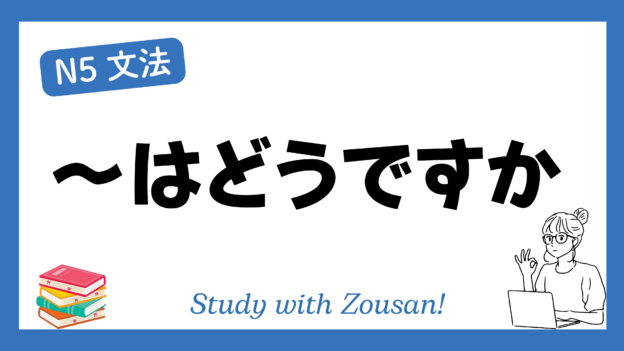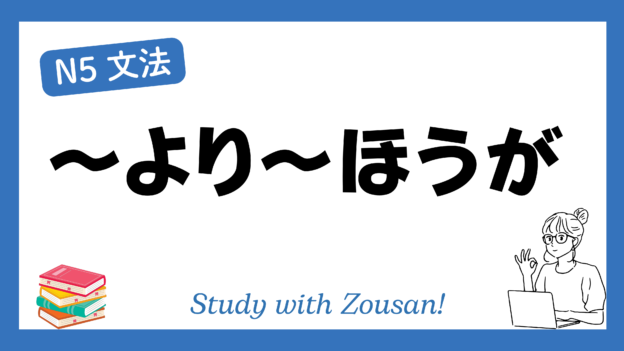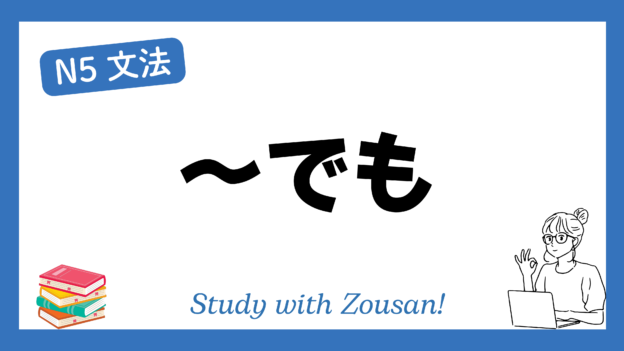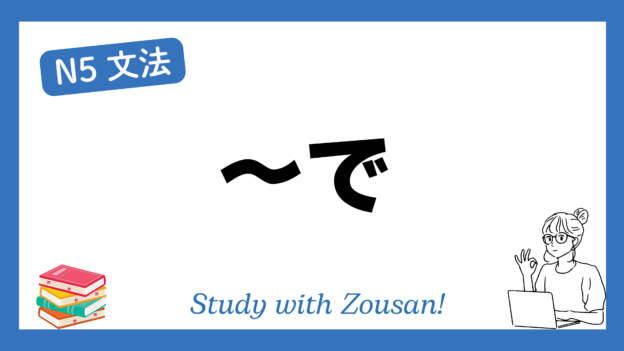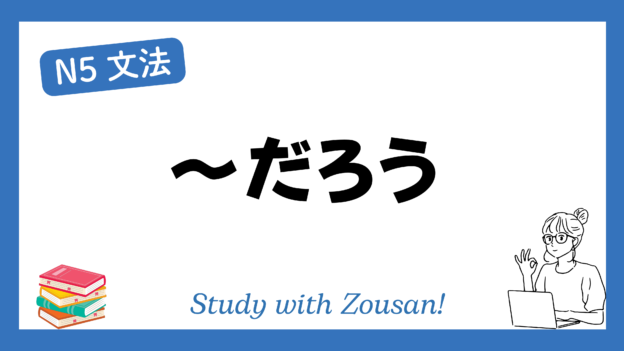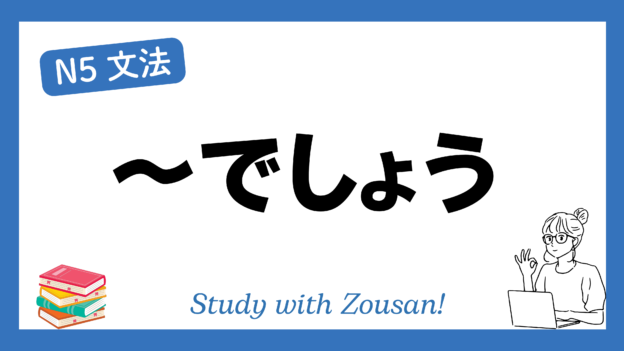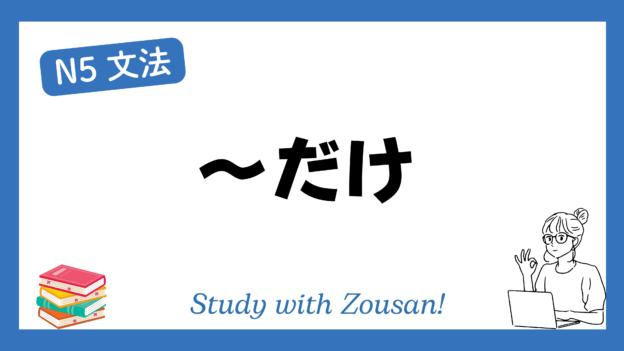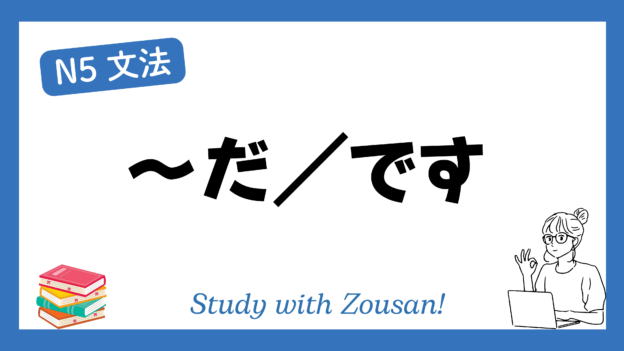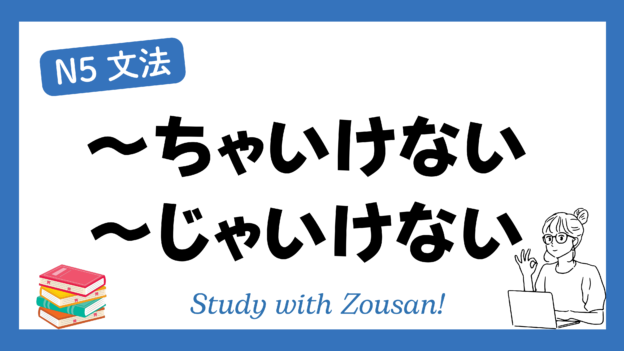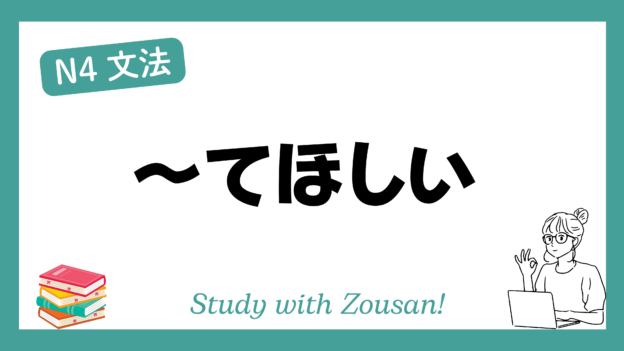Meaning: “Is…”, “Are…”
Both “だ” and “です” are used to end sentences and confirm or assert information. However, “だ” is informal and typically used in casual speech between friends or family, while “です” is polite and used in more formal situations.
※Note:
・”だ” is not used in formal contexts; it is suitable only for casual conversations.
・”です” is used in formal contexts to show respect and politeness, especially when speaking to strangers, elders, or superiors.
Structure:
| present affirmative |
だ (casual)
です (polite) |
| past affirmative |
だった (casual)
でした (polite) |
| present negative |
じゃない
ではない
じゃありません
ではありません |
| past negative |
じゃなかった
ではなかった
じゃありませんでした
ではありませんでした |
Example:
-
-
-
🌟 彼は学生だ。
(かれ は がくせい だ)
He is a student.
-
🌟 今日は雨だ。
(きょう は あめ だ)
It is raining today.
-
🌟 この本は面白いだ。
(この ほん は おもしろい だ)
This book is interesting.
-
🌟 彼は先生です。
(かれ は せんせい です)
He is a teacher.
-
🌟 今は午後です。
(いま は ごご です)
It is afternoon now.
-
🌟 この映画は長いです。
(この えいが は ながい です)
This movie is long.
-
🌟 昨日は晴れだった。
(きのう は はれ だった)
It was sunny yesterday.
-
🌟 彼は元気だった。
(かれ は げんき だった)
He was healthy.
-
🌟 その時は学生だった。
(その とき は がくせい だった)
I was a student at that time.
-
🌟 昨日は雨でした。
(きのう は あめ でした)
It was rainy yesterday.
-
🌟 彼は忙しかったです。
(かれ は いそがしかった です)
He was busy.
-
🌟 その日は楽しかったです。
(その ひ は たのしかった です)
That day was fun.
-
🌟 彼は医者じゃない。
(かれ は いしゃ じゃない)
He is not a doctor.
-
🌟 今日は休みじゃない。
(きょう は やすみ じゃない)
Today is not a holiday.
-
🌟 この本は面白くない。
(この ほん は おもしろく ない)
This book is not interesting.
-
🌟 彼は学生ではない。
(かれ は がくせい ではない)
He is not a student.
-
🌟 今日は雨ではない。
(きょう は あめ ではない)
It is not raining today.
-
🌟 この問題は難しくない。
(この もんだい は むずかしく ない)
This problem is not difficult.
-
🌟 私は先生じゃありません。
(わたし は せんせい じゃありません)
I am not a teacher.
-
🌟 今日は火曜日じゃありません。
(きょう は かようび じゃありません)
Today is not Tuesday.
-
🌟 この映画は面白くありません。
(この えいが は おもしろく ありません)
This movie is not interesting.
-
🌟 彼は医者ではありません。
(かれ は いしゃ ではありません)
He is not a doctor.
-
🌟 今日は晴れではありません。
(きょう は はれ ではありません)
It is not sunny today.
-
🌟 この場所は静かではありません。
(この ばしょ は しずか ではありません)
This place is not quiet.
-
🌟 昨日は雨じゃなかった。
(きのう は あめ じゃなかった)
It was not rainy yesterday.
-
🌟 彼は先生じゃなかった。
(かれ は せんせい じゃなかった)
He was not a teacher.
-
🌟 その映画は面白くなかった。
(その えいが は おもしろく なかった)
That movie was not interesting.
-
🌟 彼は学生ではなかった。
(かれ は がくせい ではなかった)
He was not a student.
-
🌟 今日は晴れではなかった。
(きょう は はれ ではなかった)
It was not sunny today.
-
🌟 その映画は長くなかった。
(その えいが は ながく なかった)
That movie was not long.
-
🌟 昨日は雨じゃありませんでした。
(きのう は あめ じゃありませんでした)
It was not rainy yesterday.
-
🌟 彼は忙しくじゃありませんでした。
(かれ は いそがしく じゃありませんでした)
He was not busy.
-
🌟 その場所は静かじゃありませんでした。
(その ばしょ は しずか じゃありませんでした)
That place was not quiet.
-
🌟 彼は学生ではありませんでした。
(かれ は がくせい ではありませんでした)
He was not a student.
-
🌟 今日は晴れではありませんでした。
(きょう は はれ ではありませんでした)
It was not sunny today.
-
🌟 その問題は難しくではありませんでした。
(その もんだい は むずかしく ではありませんでした)
That problem was not difficult.


